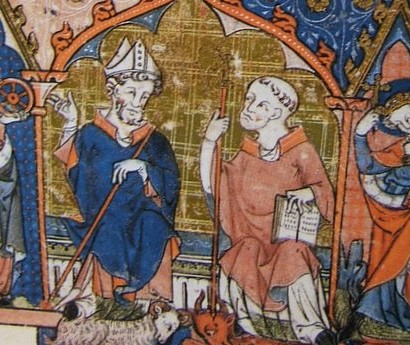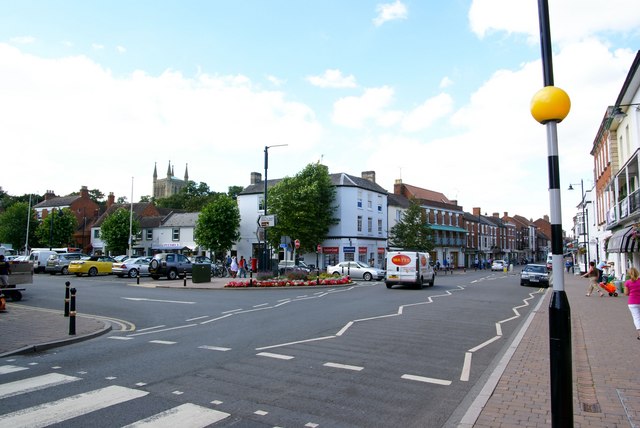|
Azor (landowner)
Azor was one of the most powerful English landowners at the time of Edward the Confessor in the 11th century. He was a kinsman and chamberlain of Brihtheah, a bishop of Worcester and a former abbot of Pershore. He owned property from Lincolnshire down to the Isle of Wight in many counties and like another great landowner of the times, Toki, he also owned urban property in addition to his vast possession of lavish country estates. He is mentioned in the Domesday Book Domesday Book () – the Middle English spelling of "Doomsday Book" – is a manuscript record of the "Great Survey" of much of England and parts of Wales completed in 1086 by order of King William I, known as William the Conqueror. The manusc ... and appears in countless histories of English counties along with his sons, Goscelin, William, and Henry who inherited his estates after his death. The sons in particular are linked with the early histories of many of the major manor houses on the Isle of Wight. Referen ... [...More Info...] [...Related Items...] OR: [Wikipedia] [Google] [Baidu] |
Edward The Confessor
Edward the Confessor ; la, Eduardus Confessor , ; ( 1003 – 5 January 1066) was one of the last Anglo-Saxon English kings. Usually considered the last king of the House of Wessex, he ruled from 1042 to 1066. Edward was the son of Æthelred the Unready and Emma of Normandy. He succeeded Cnut the Great's son – and his own half-brother – Harthacnut. He restored the rule of the House of Wessex after the period of Danish rule since Cnut conquered England in 1016. When Edward died in 1066, he was succeeded by his wife's brother Harold Godwinson, who was defeated and killed in the same year by the Normans under William the Conqueror at the Battle of Hastings. Edward's young great-nephew Edgar the Ætheling of the House of Wessex was proclaimed king after the Battle of Hastings in 1066 but was never crowned and was peacefully deposed after about eight weeks. Historians disagree about Edward's fairly long 24-year reign. His nickname reflects the traditional image ... [...More Info...] [...Related Items...] OR: [Wikipedia] [Google] [Baidu] |
Brihtheah
__NOTOC__ Beorhtheah also (Brihtheah) (died 20 December 1038) was a medieval Bishop of Worcester. Beorhtheah's family was a wealthy family from Worcester.Fleming ''Kings & Lords'' p. 33 He had previously been Abbot of Pershore, and was consecrated in 1033. He died on 20 December 1038.Fryde, et al. ''Handbook of British Chronology'' p. 224 See also * Cyneweard of Laughern Cyneweard of Laughern or simply Cyneweard (died 1079 x 1086) was a mid-11th century Anglo-Saxon thegn and sheriff in Worcestershire, England. Probably the son of Æthelric Kiu and grand-nephew of Wulfstan Lupus, Archbishop of York (1003– ..., his nephew Citations References * * External links * Bishops of Worcester 1038 deaths 11th-century English Roman Catholic bishops Year of birth unknown {{England-bishop-stub ... [...More Info...] [...Related Items...] OR: [Wikipedia] [Google] [Baidu] |
Bishop Of Worcester
A bishop is an ordained clergy member who is entrusted with a position of authority and oversight in a religious institution. In Christianity, bishops are normally responsible for the governance of dioceses. The role or office of bishop is called episcopacy. Organizationally, several Christian denominations utilize ecclesiastical structures that call for the position of bishops, while other denominations have dispensed with this office, seeing it as a symbol of power. Bishops have also exercised political authority. Traditionally, bishops claim apostolic succession, a direct historical lineage dating back to the original Twelve Apostles or Saint Paul. The bishops are by doctrine understood as those who possess the full priesthood given by Jesus Christ, and therefore may ordain other clergy, including other bishops. A person ordained as a deacon, priest (i.e. presbyter), and then bishop is understood to hold the fullness of the ministerial priesthood, given responsibility by ... [...More Info...] [...Related Items...] OR: [Wikipedia] [Google] [Baidu] |
Worcester, England
Worcester ( ) is a cathedral city in Worcestershire, England, of which it is the county town. It is south-west of Birmingham, north-west of London, north of Gloucester and north-east of Hereford. The population was 103,872 in the 2021 Census. The River Severn flanks the western side of the city centre. It is overlooked by Worcester Cathedral. Worcester is the home of Royal Worcester, Royal Worcester Porcelain, composer Edward Elgar, Lea & Perrins, makers of traditional Worcestershire sauce, the University of Worcester, and ''Berrow's Worcester Journal'', claimed as the world's oldest newspaper. The Battle of Worcester in 1651 was the final battle of the English Civil War, during which Oliver Cromwell's New Model Army defeated Charles II of England, King Charles II's Cavalier, Royalists. History Early history The trade route past Worcester, later part of the Roman roads in Britain, Roman Ryknild Street, dates from Neolithic times. It commanded a ford crossing over the Rive ... [...More Info...] [...Related Items...] OR: [Wikipedia] [Google] [Baidu] |
Pershore
Pershore is a market town in the Wychavon district in Worcestershire, England, on the banks of the River Avon. The town is part of the West Worcestershire parliamentary constituency. At the 2011 census, the population was 7,125. The town is best known for Pershore Abbey, Pershore College (now a campus of Warwickshire College) and plums grown locally. Pershore is situated on the River Avon, west of Evesham and east of Upton-upon-Severn in the Vale of Evesham, a district rich in fruit and vegetable production. History The town contains much elegant Georgian architecture. In 1964 the Council for British Archaeology included Pershore in its list of 51 British "Gem Towns" worthy of special consideration for historic preservation, and it has been listed as an outstanding conservation area. Parts of the abbey, which stand in an expanse of public grassland close to the centre of the town, date from the 11th century. The current structure is far smaller than the original build ... [...More Info...] [...Related Items...] OR: [Wikipedia] [Google] [Baidu] |
Toki (landowner)
Toki may refer to: People * The Toki clan, a Japanese samurai clan *, Japanese decathlete *, Japanese sumo wrestler * Palnatoki, a legendary Danish hero and chieftain * Toki (also spelled Toqui), the title of a selected leader of the Mapuche (indigenous Chilean people) during a time of war *Valmaine Toki, New Zealand barrister and solicitor Places *Toki, Gifu, a city in Gifu prefecture, Japan * Toki, Subcarpathian Voivodeship, in south-east Poland * Toki, Masovian Voivodeship, in east-central Poland Public institutions *TOKİ, Turkey's government-run public housing authority Fictional characters * Kamen Rider Tōki, a fictional character in ''Kamen Rider Hibiki'' * Princess Toki, a character in '' Naruto'' * Toki, the second of the four brothers of Hokuto Shinken in '' Fist of the North Star'' * Toki, a character from Hayao Miyazaki's 1997 animated film ''Mononoke Hime'' * Toki Fujiwara, a character in the anime '' Code:Breaker'' * Toki Wartooth, the rhythm guitarist of the ... [...More Info...] [...Related Items...] OR: [Wikipedia] [Google] [Baidu] |
Domesday Book
Domesday Book () – the Middle English spelling of "Doomsday Book" – is a manuscript record of the "Great Survey" of much of England and parts of Wales completed in 1086 by order of King William I, known as William the Conqueror. The manuscript was originally known by the Latin name ''Liber de Wintonia'', meaning "Book of Winchester", where it was originally kept in the royal treasury. The '' Anglo-Saxon Chronicle'' states that in 1085 the king sent his agents to survey every shire in England, to list his holdings and dues owed to him. Written in Medieval Latin, it was highly abbreviated and included some vernacular native terms without Latin equivalents. The survey's main purpose was to record the annual value of every piece of landed property to its lord, and the resources in land, manpower, and livestock from which the value derived. The name "Domesday Book" came into use in the 12th century. Richard FitzNeal wrote in the ''Dialogus de Scaccario'' ( 1179) that the book ... [...More Info...] [...Related Items...] OR: [Wikipedia] [Google] [Baidu] |




